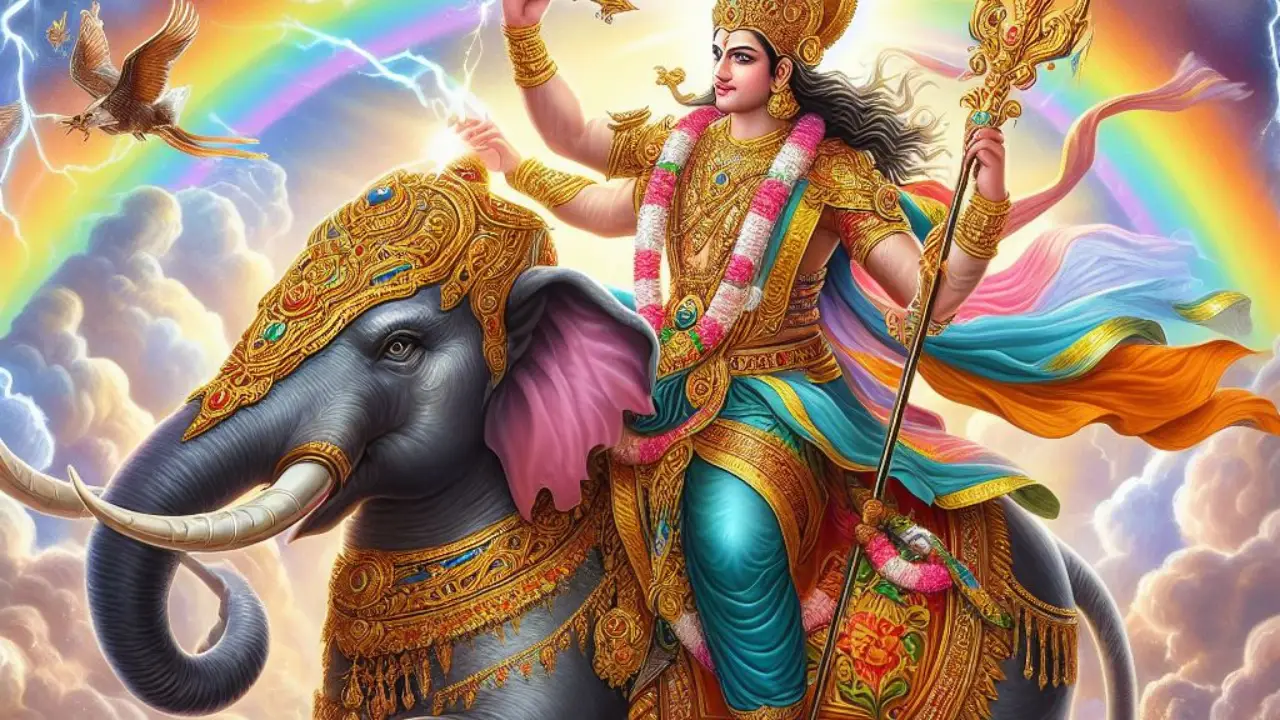In Hindu mythology, Lord Indra is the King of Gods and ruler of the heavens. He is a majestic figure, with a thunderbolt in one hand and a Vajra in the other. Despite his prominence in Hinduism, however, many people are unaware of the myths and legends surrounding Lord Indra. In this blog post, we will explore the myth of Lord Indra and his place in Hindu mythology.
Origins of Lord Indra
According to Hindu mythology, Lord Indra was born as the son of Kashyapa and Aditi, two important figures in Hinduism. Kashyapa was a sage, while Aditi was a goddess who was the mother of all the gods. Indra was born as one of their many sons, but he quickly distinguished himself from his siblings due to his bravery, intelligence, and leadership qualities.
Myths and Legends
Lord Indra is primarily known for his role as the King of Gods and the ruler of the heavens. However, there are many other myths and legends associated with him. Here are some of the most popular ones:
Defeating Vritra
One of the most famous stories involving Lord Indra is his battle against Vritra, a powerful demon who had taken control of the earth’s water sources. Indra was initially afraid of Vritra and fled from him, but eventually, he gathered his courage and fought against the demon. Using his thunderbolt, Indra was able to defeat Vritra and restore the water to the earth.
The Deva-Asura War
Another significant myth involving Lord Indra is the Deva-Asura War. It was fought between the gods (Devas) and the demons (Asuras). Lord Indra was the leader of the Devas, while the demon king Bali led the Asuras. The war was long and fierce, but ultimately, the Devas emerged victorious thanks in large part to Lord Indra’s leadership.
The Curse of Sage Durvasa
Lord Indra’s pride and arrogance were his downfall in this story. Once, Sage Durvasa visited Indra and presented him with a garland of flowers. However, Indra did not appreciate the gift and insulted the sage. In response, Durvasa cursed Indra and all the gods to lose their power and wealth. Indra and the other gods eventually broke the curse, but it inflicted a great deal of suffering upon them.
The Seduction of Ahalya
In this story, Lord Indra takes advantage of Ahalya, the wife of the sage Gautama. Indra disguises himself as Gautama and seduces Ahalya, leading to her eventual downfall. When Gautama discovers what has happened, he casts a curse on Indra, forcing the god to live in exile for a time.
The Myth of Lord Indra
Despite his many accomplishments, Lord Indra is not without flaws. He is often depicted as vain, selfish, and prone to fits of anger. In some myths, he even shows jealousy towards other gods and is willing to go to great lengths to maintain his position as King of Gods.
One of the most interesting aspects of Lord Indra’s myth is the way it reflects the societal values of ancient India. In Hinduism, individuals must fulfill their duties and responsibilities according to their station in life, making the concept of dharma crucial. Lord Indra is no exception, and his myth emphasizes the importance of leadership, bravery, and sacrifice in fulfilling one’s dharma.
At the same time, Lord Indra’s flaws also serve as a cautionary tale. His arrogance and selfishness often lead to his downfall, and his struggles against demonic forces and other deities demonstrate the consequences of ignoring one’s duties and responsibilities. Ultimately, Lord Indra’s myth shows that even the most powerful and respected leaders are not immune to the consequences of their actions, and that true greatness comes from acting selflessly and with humility.
Conclusion
Despite the myth’s age and cultural specificity, its lessons are still relevant today. Leaders in all fields can learn from Lord Indra’s example. They should strive to balance their own ambitions with the needs of their communities. Lord Indra’s bravery and dedication to fulfilling his dharma can inspire individuals of all backgrounds. It can motivate them to strive for the same in their own lives. Ultimately, Lord Indra’s myth is a reminder that the quest for greatness is not just about personal achievement. But it is also about serving others and fulfilling one’s responsibilities to the best of one’s abilities.





